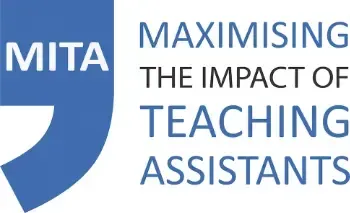New research shows MITA improves TA deployment and practice and has a positive impact on pupil engagement and independence.
An independent evaluation has found that schools that undertook the MITA programme improved how TAs were deployed and prepared for their classroom roles, and that participation in MITA was associated with a positive impact in terms of pupil engagement.
Analyses of data collected from 2,338 pupils using a validated measure of engagement with learning found that those in MITA schools were more engaged than those in control schools. Promisingly, this effect was evident a year after TAs received our scaffolding training on improving pupil independence. TAs in a small randomly chosen sample of schools were much more likely to provide helpful prompts, and do far less correcting. Teacher surveys reported that pupil independence improved, and that TAs had a significant or mostly positive impact on this.
The evaluation indicates that teachers and TAs reported improvements in how they interacted with each other. There was an increase in the proportion of teachers and TAs reporting that they had scheduled time each week for communication. There was also evidence that TAs’ confidence improved. There was also some evidence of a change from what was found in the Deployment and Impact of Support Staff (DISS) project, where the tendency to deploy TAs as proxy teachers for lower-attaining pupils and those with SEND resulted in those pupils who most needed high-quality teacher input, actually receiving the least input, as well as having fewer opportunities to work independently.
As the MITA approach is founded on the view that the most effective way to deploy TAs in the classroom is to support the development of pupils’ non-academic skills, we do not train TAs to teach curriculum areas. However, our theory of change predicts that where schools make improvements to TAs’ practice and pupil engagement, there may be a positive knock-on effect on learning in the longer term. To test for this, the evaluation included a standardised reading assessment for pupils in Years 3 and 6. There was no evidence that MITA had an impact on reading outcomes. However, this attempt to capture long-term impact on learning may have arrived prematurely, and further testing of this hypothesis is needed.
The evaluation of MITA, commissioned by the Education Endowment Foundation, was conducted by RAND Europe and involved 128 primary schools in England. Senior leaders, TAs and teachers in schools randomised to the treatment group received training, support and materials over the 2017/18 academic year. Leadership teams developed a whole school improvement plan, which they fully implemented from September 2018. Post-test data to measure impact were collected in summer 2019. Pre-test data were collected in summer 2017.
The evaluation report is available on the EEF website.
Media: Why schools should rethink teaching assistants' role – Tes, 24 Sept 2021

